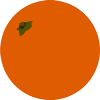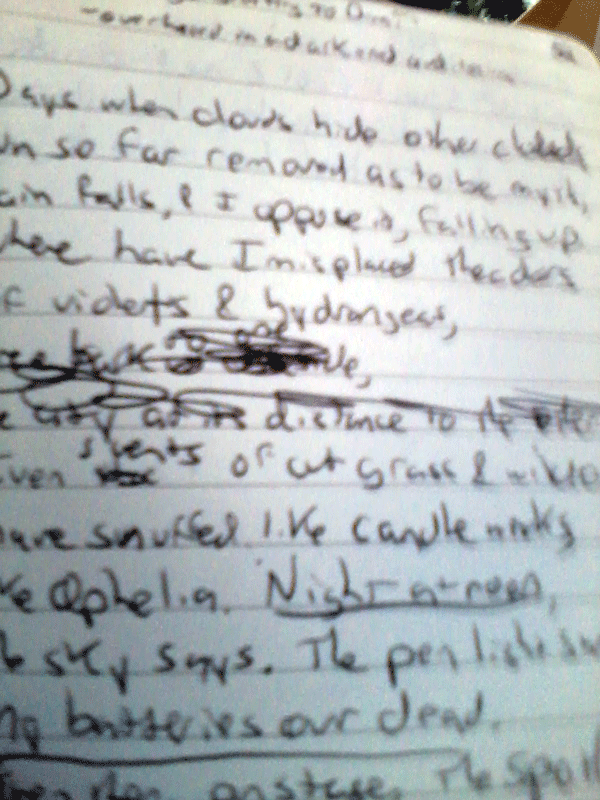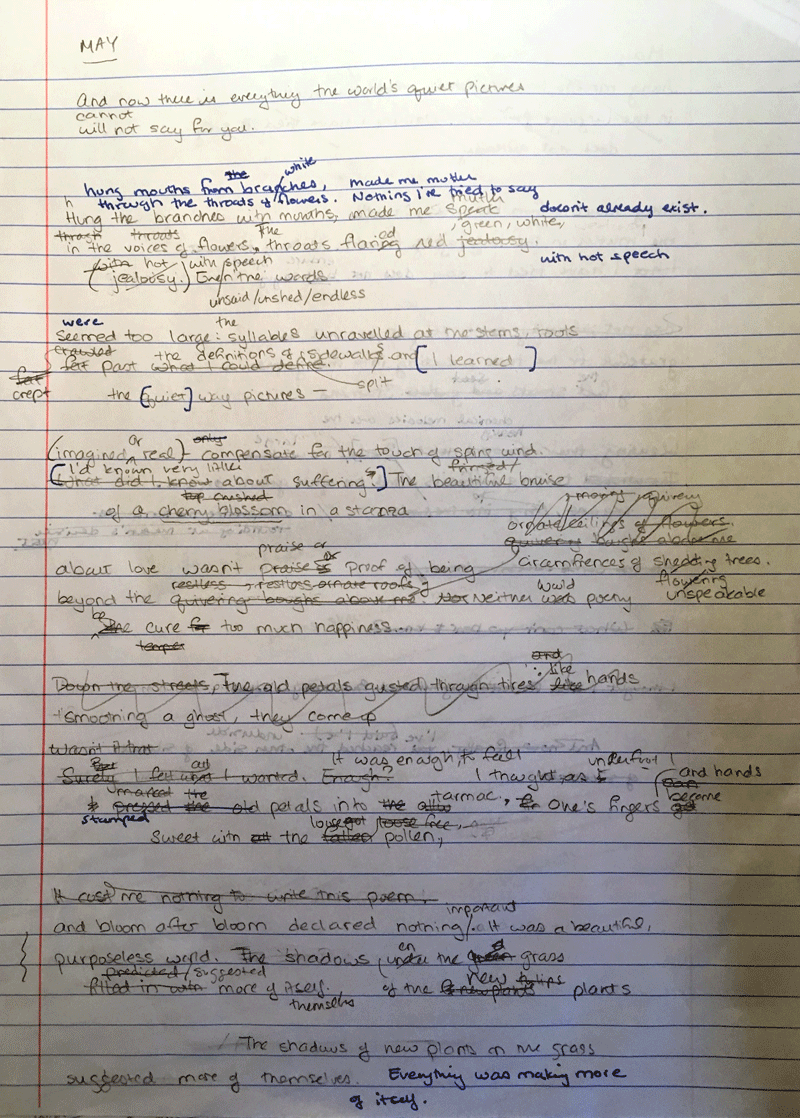Inter-
Ace Boggess
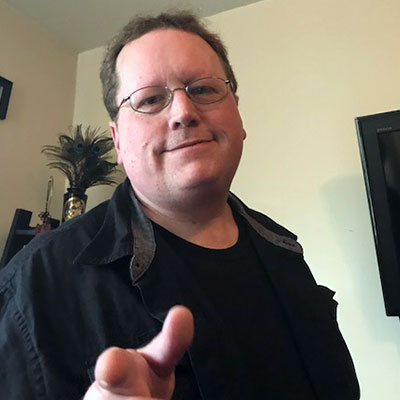
On Practice:
Do you write at the same time every day, in the same place? How would you describe your writing practice/s?
I write wherever I happen to be when an idea comes. Often, that means lying in bed or sitting in a coffee shop. As for timing, I try not to preplan it. That’s part of the psychology for me. In the morning, my brain is empty, and interesting things often develop. At night, my brain is overrun, and poems sometimes just spill out on their own. During the day, it’s more businesslike, and I tend to be more formulaic or prosy.
I usually read for a half an hour to an hour before I write. It’s a leftover habit from my years as a drug addict. I would take my dope and read while waiting for it to kick in, then write poetry or prose, depending on what I’d been reading and which journal I happened to have in my hand (yes, I have separate journals for poetry, short stories, and novels).
What do you do if you get stuck while writing a poem?
I don’t get stuck while writing a poem. Finding the poem is the hard part. Once I’ve started writing, the rest comes out on its own. Unless I’m interrupted, that is. Not being interrupted, that’s the hard hard part.
Take a photograph of a page from your notebook or a screenshot of an electronic file of a poem you have been recently writing or revising.
On Poetry:
Is there something you once believed about poetry that you no longer hold true? What changed?
When I was young, I thought poetry was either boring and dreadful or flowery and romantic. Now I know it can be brutal, humorous, honest, inspiring, nostalgic, and a whole unspoken litany of other things. As for what changed, well, I read a lot. I stopped reading the things I was taught to read and started reading, well, anything I could get my hands on. Also, I attended readings by poets like Mark Halliday, who can bring genuine laughter to an audience. When you hear poetry and laugh, it changes your whole view of the art.
What can/does poetry change?
In terms of big-C change? Who knows? Hard to say how often the dictator du jour will read Adam Zagajewski and say, “I’m not going to murder anyone today because of that.” I mean, it’s beautiful and stirring stuff, but does it have real, practical impact on the grand scheme of things? Probably not. At least, not that often. I’m sure we’ll keep trying, though. As for small-C change? Definitely. It can change your mood, your ability to empathize, your understanding of other people and the connections between their lives and yours, no matter how different those lives might be. I’m happy changing the little things. If I can get you to laugh while I’m showing you the horrors of my prison life, I feel like we’ve both been made better in the process.
Is there something you now think you know about poetry that you wish you’d known a decade ago?
Honesty first, then laughter, then beauty. It used to be the opposite order, and at least for me, that led to a bit too much pretentiousness.
On Influence & Inspiration:
What books are on your night stand, the back of the toilet, your desk?
Night stand: The novel Marlena by Julie Buntin, the poetry collection When I Grow Up I Want to Be a List of Further Possibilities by Chen Chen, and the latest issue of Prairie Schooner, all of which I’m reading. Back of the toilet: nothing...blech, that’s gross. Desk: mostly all the books I’ve read that I haven’t shelved or passed off to friends yet (look for my recent Goodreads entries to get a pretty good idea).
Which writer/s do you (re)read the most? What does the writing do for you upon return?
Probably the three books I reread often are David Lehman’s The Evening Sun, Adam Zagajewski’s Without End, and Horoscopes for the Dead by Billy Collins. With the first two, when I read them, I actually can feel the tone and energy of my own writing changing. They have that effect on me. With Horoscopes, I just love the book. A couple other favorites are Natasha Sajè’s Red Under the Skin and David Rigsbee’s Your Heart Will Fly Away.
Among the poets you most admire, who has influenced you the least? Why have you not been influenced by his/her/their work?
I love James Tate’s work for its weirdness and sort of mythic beauty. I’m not sure I’ll ever get it when it comes to what makes a good prose poem, though. It’s not my area. I’ll give it a try from time to time, but in that case, I know that I don’t know, and so just go wandering blindly through the maze.
Describe a moment from your life when you've been overcome by how beautiful something is.
The mist on the Ohio at 3 a.m. My friends and I, all wasted out of our minds, would head to the park and play on swings like we were children, while staring out over the river. I always loved being there with the sense of companionship and unscripted fun. Mornings when the mist covered the river, I felt totally alive for those rare moments.
On Teaching:
How would you describe poetry to a four-year-old? To the non-literary family ancestor you imagine as a great source of who you are?
To a four-year-old: It’s like watching a glass shatter: lovely, dangerous, unexpected, and it can get you into trouble—the right kind of trouble and the wrong.
I think of my grandfather. He was an alcoholic veteran. I barely remember him, and can’t recall a single word he ever spoke, but I know from family stories he cussed and shouted and likely taught me to swear when I was three. I relate to him because of his addiction and the loneliness I perceive from stories about him, brutal and ugly as he must have been. I’d tell him poetry is silence behind which some profanity or other always hides.
What characteristics does your ideal poem possess?
Laughter, meditation, and some sort of insight into another person’s life that manages to have a meeting of the minds with mine.
Do you teach poetry? If so, what are you trying to teach through poetry? What has poetry taught you?
Not per se, but if anyone asks...
Honesty, laughter, beauty. In that order. Wait, I already said that...
Your loves and horrors are the same as mine, although they’re not.
On Publishing & Themes Present/Future:
How has publishing your poems changed your writing practice, process, and product?
Getting poems published fueled my writing. I never considered myself a poet. I always thought of myself as a novelist. But while I was struggling to sell my novels, I wrote hundreds of poems and saw them published in a ridiculous number of journals (or mimeographed ‘zines, remember those?). Somewhere along the way, other folks started referring to me as a poet. The publication of my poems made me a poet, almost against my will. Now that I’ve accepted that, I’ve had a novel published. The universe is just damned twisted.
Is there a poem you've always wanted to write but haven't? If so, why are you waiting?
No. I want to write what I write better and I keep trying to do so.
What subjects, themes, forms, aesthetics, etc. do/will you explore in your work?
I always have at least one theme going. It’s my fallback if there’s no new inspiration. I’ve used headlines, horoscopes, old sci-fi and horror movies, and probably the theme that most defines my work: questions. I keep a list of questions that I use as titles. Whenever I need a jolt of inspiration, I pick one and answer it in verse. I’ll probably write down a couple of these questions and go back to them later. I’m obsessive like that.
On Oranges:
Oranges or apples? Why?
Oranges. I don’t eat much fruit, but little tastes better than ice-cold orange juice.
About the Poet
Ace Boggess is author of three books of poetry, including Ultra Deep Field (forthcoming from Brick Road Poetry Press), and the novel A Song Without a Melody (Hyperborea, 2016). His poems have appeared in Harvard Review, Rattle, River Styx, and many other journals. He lives in Charleston, West Virginia.
Inter-
Laura Ritland
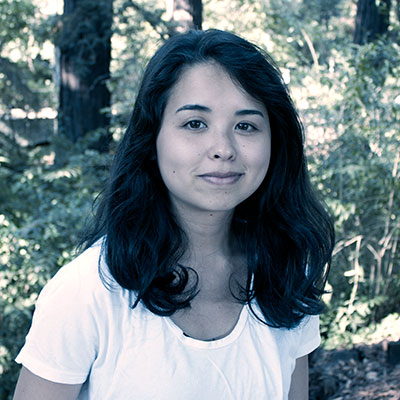
On Practice:
Do you write at the same time every day, in the same place? How would you describe your writing practice/s?
I’ve never been very good at writing in public spaces. I write at home, at my desk, under the illusion that I am performing a very secret operation. Mornings are amazing if I can get them. Lately, it’s been a lot of late nights because I’ve been doing the unwise thing of juggling PhD coursework with writing. Sometimes I scare myself and try to write a poem in a café or on a park bench, like in the movies. But those poems tend to turn out too self-conscious.
What do you do if you get stuck while writing a poem?
- Leave it and return to it the next morning. Hope an answer will magically occur overnight.
- Read another poet’s poem—what would they do to get around the roadblock? This can be a good strategy in that you are pushing yourself to develop yet-untried techniques. It can also be bad in that you might feel as if you are a perpetual apprentice to that other poet. But it’s just another thing to try.
- Read other poems you have written—what would your former self do? You knew a lot more than you might think.
- Re-write the poem in a few different mediums: type it out, write it in pen, write it in pencil, typewrite it. Your fingers know more than you might think. And it’s fun to feel as if you are doing work while actually not doing it.
- There could be a good reason why the poem’s stuck on its rails. Maybe there’s something wrong with the track (in which case, revise the first part). Maybe something has to happen to you to finish the poem. Maybe you aren’t ready to write this poem and that’s okay too.
Take a photograph of a page from your notebook or a screenshot of an electronic file of a poem you have been recently writing or revising.
On Poetry:
Is there something you once believed about poetry that you no longer hold true? What changed?
I used to think that a poem should be (and must be read as) an object in isolation. As if all that is the poem is all that’s on the page—a beautiful species pinned to a blank space, understandable solely on its own terms. I still believe that the autonomy of the poem is deeply important, but I’ve also come to understand how intrinsically process, context, and a writer’s identity influence the artefact. This isn’t to say that I’ve swung in the opposite direction of thinking of poetry as derivative from context—I hope that’s not the case! Rather, I’m still trying to grapple with the relationship between a poem as its own object, on the one hand, and a poem as produced from a particular person and place in time, on the other hand. I still love the idea of a poem’s independence. But we have to think about origins as well.
What can/does poetry change?
For me, poetry changes us by asking (and making us ask) hard questions. Why are good people bad? Or bad people good? What do we do when we encounter ethical or moral realities that don’t align with how we want the world to be? Of course fiction does this too, through its telescopic ability to zoom in and out between the societal and the personal—some might say that as a genre it’s better designed than poetry to ask hard ethical questions. But there’s something so much more immediate and shameless in poetry’s tendency towards focalizing voice and exposing bare thought. A reader has to absorb a poem’s questions head-on by totally immersing herself in the speech or patterns of this othered, alien thing.
I’ve often heard people say they find poetry difficult to read—and yeah! It is hard, because it requires an ethical, emotional, and cerebral investment more intense than most other forms. It requires time. It requires you to change something about your thinking, or beliefs, or point of view at an uncomfortably, almost obscenely, fundamental level.
Is there something you now think you know about poetry that you wish you’d known a decade ago?
One thing I would tell my former self is to not give so much of a damn about perfecting the poem—about trying to find that pitch-perfect voice or word. Try a bunch of crazy techniques and subject matters for goshsake! Give yourself license to royally mess up! Because in the end pleasing somebody else—especially that dictatorial inner critic who wants the poem to be “perfect”—just heightens a self-doubt which will jeopardize your motives for writing. And what you think is perfect now will change in another few months anyhow. Don’t hold onto an inviolable idea of how things should be. We aren’t textbook cases of dead Poet X who is known for style Y. At least not yet.
On Influence & Inspiration:
What books are on your night stand, the back of the toilet, your desk?
I don’t have a nightstand yet because I am too lazy to buy real furniture and I don’t leave books on toilets because that’s gross. But here are a few things floating around in the hot mess that is my desk as of May 28, 2017. Some of them are usual suspects, some are new:
Studies in the History of the Renaissance by Walter Pater, Lyrical Ballads by Wordsworth and Coleridge, The Road In Is Not the Same Road Out by Karen Solie, Geography III by Elizabeth Bishop, Loop of Jade by Sarah Howe, The Irrationalist by Suzanne Buffam, Men in the Off Hours by Anne Carson, Changing My Mind by Zadie Smith, The Vegetarian by Han Kang, Midnight’s Children by Salman Rushdie, Of Being Dispersed by Simone White, Methodist Hatchet by Ken Babstock, Loving Literature by Deirdre Lynch, We Gon’ Be Alright by Jeff Chang.
Which writer/s do you (re)read the most? What does the writing do for you upon return?
Karen Solie’s work is a constant source of inspiration to me. Her poems make me aspire to write better poetry, but they also just offer me ways of thinking about moments of change or upheaval—those necessary crises. I re-read her work because it makes sense to me at times when not many other things do.
Among the poets you most admire, who has influenced you the least? Why have you not been influenced by his/her/their work?
I adore Anne Carson’s work endlessly, but now that I think of it, I can’t really trace specific ways she has influenced my writing. Maybe I just can’t do what Carson does! She makes silences, breakages, and ruptures part of the poem’s landscape; when I’ve tried to write a Carsonesque poem, it gets gangly and awkward. Like a teenager or a plant left to grow in a dark room.
Describe a moment from your life when you've been overcome by how beautiful something is.
Despite loving nature to the point of being a weirdo eco-fanatic, I’ve felt most consciously moved by the beauty of cities—Toronto, specifically. I hated it the first winter I lived there (like, ice literally fell from the sky?!). But somehow that suffering became a deep, inexplicable, and perhaps somewhat masochistic, love for the city in winter. Especially the city at night, half-lit, neon, buzzing with traffic, shining with layers of slithery ice, greying with old snow-patches, over-blown with sparkling flurries... it was beautiful unlike anything else.
On Teaching:
How would you describe poetry to a four-year-old? To the non-literary family ancestor you imagine as a great source of who you are?
To a kid, I would say: poetry is like a secret puzzle sent from someone to someone else to solve. If you crack the code, you learn something new about the world or the sender. When I think of a non-literary ancestor who is the source of all that is me, I think of chimpanzee and bonobos. Because Darwin, right? So to a chimp or a bonobo, I would say: poetry is like trying to get a bug out of a very small hole with a very short stick. It is frustrating, detail-obsessive, and a waste of time, but that bug is going to be so worth it when you finally get to eat it.
What characteristics does your ideal poem possess?
I always feel silly saying a good poem should do this or that—because truthfully, I don’t think there’s so much an ultimate good in poetry as that poetry is a genre that continues to change and mutate like a genetic blueprint. That sounds very bland, maybe. But I do seriously wonder how useful it is to think of certain qualities of poetry as being “good” or “bad.” What ultimately affects and moves us has to be inexplicable and unqualifiable, to an extent. But I’ll take a stab: I guess my ideal poem would take an enormous risk and nearly fail—but not fail. And my ideal poem would make me more aware of what I am in the world, and what it means to be here. It should offer a sense of presentness, whether that be a terrible kind of wakefulness or a moment of ecstatic beauty.
Do you teach poetry? If so, what are you trying to teach through poetry? What has poetry taught you?
I did teach an introduction to reading (if not writing) poetry just over two years ago and it was amazing. One thing I hope I conveyed, if not actually stated, was that poetry is always pertinent to the contemporary moment—not a dead art of a mostly white, mostly male literary canon. It’s a practice that anyone can be part of. There are myriad trends, and attitudes, and approaches—a million and one ways anyone can become interested in the genre as a reader or a writer. We all belong here. It’s not a club for the elite, though unfortunately that’s the rap it gets—and not for entirely unfounded reasons.
Poetry—or writing poetry—has taught me a heck of a lot of life lessons. The biggest one is how to fail and just get over it! The second biggest one is to have confidence in what I love.
On Publishing & Themes Present/Future:
How has publishing your poems changed your writing practice, process, and product?
In an odd way, publishing has made writing less scary for me. I think Sylvia Plath once called publishing the “the sacralization of print” or something along those lines. And yes, it’s true, that once something is published it feels apotheosized—it’s a social ceremony, a rite. But at the same time, publishing doesn’t change the purposes you set out with, the techniques you develop, the ideas you haven’t yet settled. It’s just another station along the road. Perhaps publishing a book will feel different, I’m not sure.
Is there a poem you've always wanted to write but haven't? If so, why are you waiting?
I’ve wanted to write about Chinatowns—both Vancouver’s and San Francisco’s. I’ve been sad to see Chinatown disappearing in Vancouver with the new housing developments and the overall gentrification of the city. Chinatown was where my mom’s side of the family first lived when they immigrated to Canada. But at the same time, it’s tricky business to write about because my life experience is worlds away from what my grandparents and mom had to go through as immigrants in Canada. At the same time, I want to honour the protection Chinatown offered my relatives—the protection it still offers Chinese communities. I’m not sure how to do that yet while also acknowledging my subject position.
What subjects, themes, forms, aesthetics, etc. do/will you explore in your work?
My forthcoming manuscript with Vehicule Press is looking like it will be a lot about bodies, materiality, disorientation, and cities. I’ve been trying to work through the idea of “east and west” too—as binaric, spatial orientation; as a cultural politics; as a diasporic or imperialist movement; as a diagram of race and identity. I’m interested in the way the “west” of Canada and the U.S. continues or breaks with the colonial mandates which spread from the “east” of these nations. And how we break our mental maps between Asia and Europe as an “east” and a “west.”
On Oranges:
Oranges or apples? Why?
Oranges! They’re like the introverts of the fruit world, and for that reason I identify with them!
About the Poet
Laura Ritland’s poems have appeared in magazines across Canada, including Canadian Notes & Queries, Maisonneuve, Arc Poetry Magazine, and The Malahat Review. Her first book is forthcoming with Vehicule Press in spring 2018.
